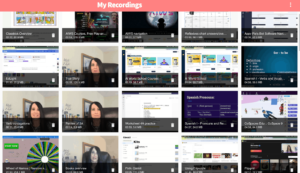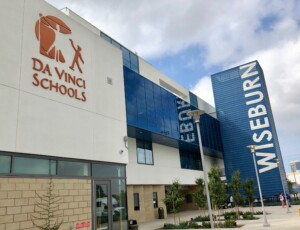Video and Q&A: Barbara Dreyer, CEO, Connections Academy
The great thing about well-run Internet companies is that they embody what a lot of businesses in the “real world” wish they could do well. They are open. They thrive off of feedback. They seamlessly align with their client base. And they respond immediately to their communities.
These days, education companies on the Internet are proving to be best case examples of these kinds of companies. Connections Academy CEO Barbara Dreyer has built a business out of this type of thinking.
You talk about Connections Academy having feedback loops with its students, teachers and parents, meaning the product is never the same thing twice. What does this do for the company?
We change our program every year. They rate us on everything. We really look at that, along with the feedback ratings. Courses get changed. Delivery methods get changed. Different clubs and activities get added.
Is this something that should be a permanent part of education online?
I think that’s what emerging companies need to focus on. You have to build something that serves all the needs of the community.
In terms of the Internet, as someone who has seen it from earlier days, it’s moved from a place where you get information to really being the place for community and really bringing people together.
Even with education. You can get when the years of the civil war were, you can find that. Now you can find people who will be talking about the civil war, who will be debating or will be giving their point of view on their view of history.
The argument now is that the way teachers are operating will change. So, what is Connections Academy doing to influence this, and what do you personally think great teachers will be doing in the near future?
Well, who becomes the arbiter of what is real and what is right, when you now have so many sources of information? That will be one of our next challenges.
With our students becoming so competent at finding accessing information, you have to think about how do we deal with integrity and plagiarism. You have so many different sources to go to to get real data.
You’ve got to have a teacher who is able to use tools, and teachers who are able to engage with the student, who move past technology.
What does that mean?
We use the old fashioned phone and we have conversations about papers these students have done. That’s a different kind of assessment. It’s almost like the old Socractic method. It’s kind of ironic that you almost have to go back to the old fashioned method, because tech has brought us to a positive place of integration.
So, I’ll pick up on that point. Tech has made it a more engaging community experience for learning. You use the phone, but that’s to re-emphasize what the student is doing in-community. What do you say to critics of online learning who say that, actually, online learning leads children to practice anti-social behavior?
We have found that students who are engaged in online learning are actually more comfortable and articulate in engaging with their peers than students who may be only classroom-based. If you are physically with someone, you know, for some students there is a discomfort of “Hey, I might be judged,” or “I am putting myself out there and at risk.”
When they interact online, we’ve seen that many are much more willing to talk about their views, and try something because they don’t have the same perception that they risk failure.
By making the risk low of engaging and being rewarded with the dialogue and all the things that come with engaging with other human beings, you tend to be more confident and you did well and you saw results.
But do the students ever get a chance to see each other Live?
What we hear from parents and are seeing from many students is that they are incredibly interested in engaging with each other in person.
What we are most proud of is that we are not the biggest, but we have outstanding academic results, we are creating vibrant communities, these are real schools. They offer the same kind of socialization but on different levels.
So, Connections Academy is a community first, with feedback loops that help you tune the offering, and a constant emphasis for academic rigor. Is that what attracts students to the offering? Isn’t this also about flexibility
What they are really looking for is that they are part of a community that cares for them, but one that is not just limited to the school day and the traditional school form, specifically. This really is about a learning day, so you can learn from the morning, take a break, learn in the afternoon.
One of the things that distinguishes your program is that since Connections Academy is online, the “school experience” is much bigger than the individual students. Can you talk about where you want to go from here?
We are rethinking how do you take some of the things that are so powerful in the physical realm and make it more powerful online.
Online is thriving in places where there is choice. We want to see opportunities for choice open up.







0 Comments
Leave a Comment
Your email address will not be published. All fields are required.